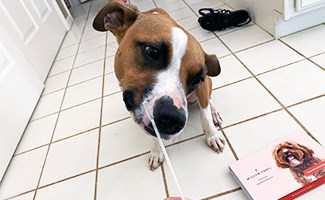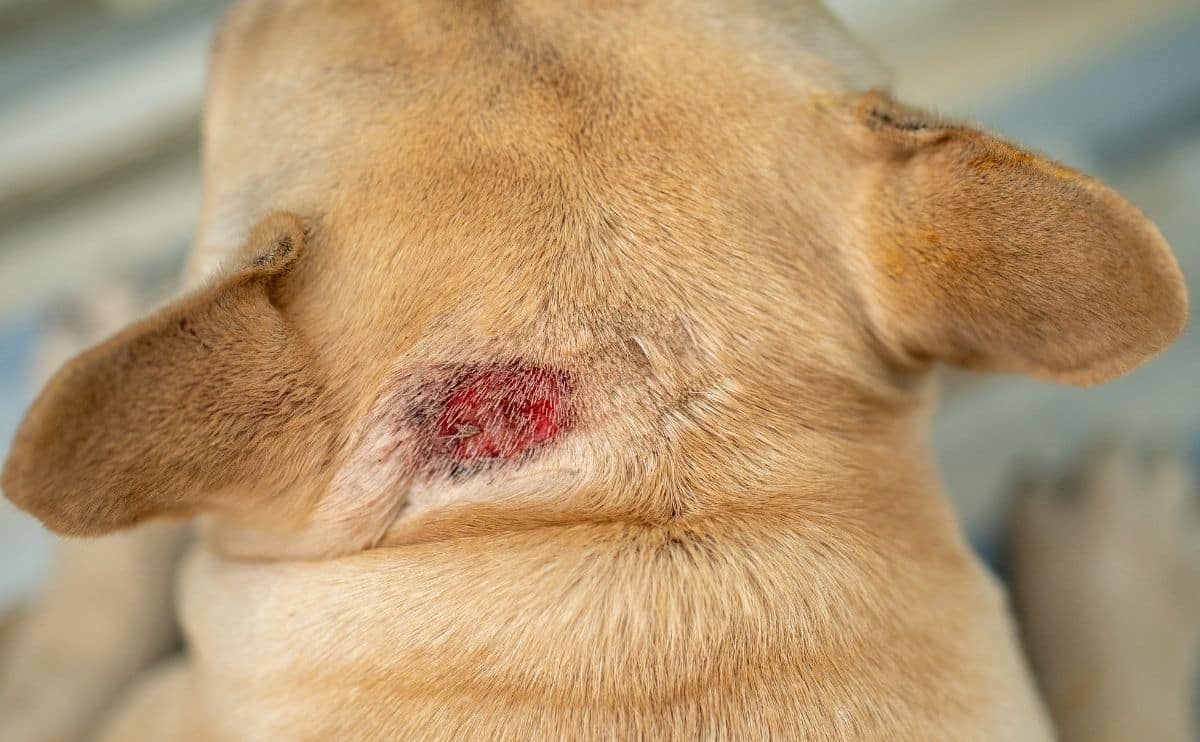MDR1 In Dogs: Symptoms, Genetic Testing & More
When you purchase through links on our site, we may earn a commission. Here’s how it works.

The study of dog genetics is revealing more about the health of our canine companions than ever before. Hidden in the genetic code of some dog breeds is a mutation that can increase their susceptibility to drug toxicity, which can lead to serious health consequences.
Table of Contents
Awareness of this defect is increasing, but some information and advice about it can be confusing or misinformed. Here, we explain the MDR1 (multi-drug resistance 1) gene, the breeds most affected, how to test for it, and what this genetic mutation could mean for your furry friend.
What Is MDR1 In Dogs?
The MDR1 gene (also called the multidrug resistance gene) in dogs produces the protein P-glycoprotein. This protein is, in fact, not unique to dogs and is found in many other mammals, including humans. P-glycoprotein plays a role in transporting drugs around your dog’s body and limits the absorption of certain drugs in the brain. This gene also enhances the excretion and elimination of certain drugs by physically pumping drugs and toxins from the cerebrospinal fluid (the fluid that bathes the brain and spinal cord) back into the blood circulation.
The MDR1 gene mutation causes a faulty P-glycoprotein, which means that drugs and toxins can accumulate in the cerebrospinal fluid in large amounts — this buildup can negatively affect a dog’s brain activity.
How Is The Gene Mutation Inherited?
A gene mutation is an alteration, or mistake, in the genetic material that makes up a dog’s chromosomes. Dogs have two copies of every gene — one inherited from their mother and one from their father. Gene mutations may be inherited or acquired — they’re mistakes that happen when cells divide to produce new cells, and the genetic material is copied incorrectly. Dogs inherit the MDR1 gene mutation from their parents. The mutation can affect mixed breed dogs as well as purebreds.
MDR1 is an “autosomal incomplete dominant” inherited disease, meaning that dogs can be affected if they inherit the abnormal MDR1 gene from one or both parents. Dogs who have inherited faulty genes from both parents have full-scale adverse drug reactions to certain medications. Dogs who inherit only one faulty gene may also show milder effects, but they won’t be as severe as those with two copies of the mutated gene. These dogs can still experience drug sensitivity, which can be managed once properly diagnosed.
Breeds Most At Risk

The MDR1 mutation has been identified in various dog breeds. Most of these fall into the category of “herding breeds.” Collies have one of the highest frequencies. It’s important to remember that it’s not only purebred dogs that are at risk for the MDR1 mutation — mixed breed dogs or crossbreeds can also be affected.
The breeds most commonly at risk include:
- Collies
- Shetland Sheepdogs
- Old English Sheepdogs
- Australian Shepherds
- English Shepherds
- German Shepherds
- Long-Haired Whippets
- Silken Windhounds
What Are The Signs Of The MDR1 Mutation In Dogs?
It may be difficult to identify MDR1 symptoms. Day-to-day, dogs with an MDR1 gene mutation can appear clinically normal. But dogs showing signs of drug toxicity may have vague neurological signs such as:
- Weakness when walking
- Lethargy
- Stumbling
- Appearing disorientated
In severe cases, dogs may exhibit these symptoms:
- Struggling to move
- Signs of seizures
- Becoming unconscious
These symptoms normally occur soon after administering one of the drugs listed below. If you’re concerned that your dog appears to have an adverse drug reaction after receiving medication, then seek urgent veterinary advice.
How To Test For MDR1 In Dogs

Getting your dog tested for MDR1 can shed light on whether he has this genetic mutation. It’s best to seek veterinary advice if you’re considering an MDR1 test for dogs to identify this gene mutation. Your vet may be able to give your dog a DNA test to screen for MDR1. This commonly involves a simple swab from the inside of your dog’s cheek.
You can also do a similar DNA test from home. We recommend several at-home dog DNA test kits that can identify if your dog has the MDR1 mutation: Embark, Wisdom Panel, and EasyDNA. Then, you can share your results with your veterinarian to determine a health plan for your pup.
What Drugs Should My Dog Avoid If He Tests Positive For The MDR1 Gene Mutation?
Not all drugs apply to the MDR1 mutation. Common medications that can affect a dog with the MDR1 mutation include:
- Antiparasitic medications, such as ivermectin, selamectin, milbemycin, and moxidectin
- Chemotherapy drugs, such as doxorubicin, vincristine, and vinblastine
- Sedative medication, such as acepromazine
- Apomorphine, a drug that can be used to induce vomiting
- Diarrhea medication, such as loperamide
It’s important to remember that having the MDR1 mutation doesn’t necessarily mean a dog should never receive these medications, but they likely will have drug sensitivity. By taking into account your dog’s MDR1 status, your veterinarian will be able to select appropriate medications and adjust the dose accordingly.
In many antiparasitic medications used to prevent heartworm and lungworm, the doses of ivermectin, selamectin, moxidectin, and milbemycin are low enough for safe use in dogs with the MDR1 gene mutation. It may also be possible for your veterinarian to prescribe medications to prevent and treat heartworms that aren’t affected by the MDR1 gene mutation.
It’s always advisable to seek veterinary advice before using an antiparasitic medication, especially if you think your dog might have the MDR1 mutation.
Is It Safe To Vaccinate Dogs With A Known MDR1 Gene Mutation?
Yes. There is no link between vaccine reactions and the MDR1 gene mutation. In general, vaccinations form an important part of your dog’s preventative health care and help to keep our canine friends healthy and safe.
What Treatment Is Available For MDR1 Gene Mutations?
If your dog is showing signs of drug toxicity related to the MDR1 gene mutation, then he may need hospitalization for intensive supportive care such as IV fluids, management of seizures, and neurological monitoring. Some medications may have a reversal agent that your veterinarian can administer.
If your dog is an at-risk breed or crossed with one of these breeds, it’s advisable to consult with your veterinarian about genetic testing so that your vet can avoid certain drugs or reduce the dose. Prevention is always better than cure. It is much better to learn about something like Ivermectin sensitivity (or other drug sensitivity) before your pup goes through a bad reaction.
Should I Get My Dog Tested?
This three-minute video from Best Friends Veterinary Center in Grafton, WI, features an owner of Aussies discussing with her veterinarian Nan Boss, DVM, why she got her pup tested for MDR1. Dr. Boss also explains who should consider DNA testing and why it’s so important.
What Should I Ask A Breeder?
If you want to adopt one of the breeds listed above or a mixed breed whose parents are one of these breeds, we recommend finding a reputable breeder. Enquire if the breeder has already carried out genetic testing for the MDR1 gene mutation on both parents. Dogs only need MDR1 testing once in their lifetime, as their DNA won’t change.
Breeders should give preference to breeding dogs with two normal copies of the MDR1 gene. If your breeder has already completed the testing, they should be able to provide you with a copy of the results. You should pass these results on to your veterinarian so they can make an appropriate plan when your dog needs treatment.



